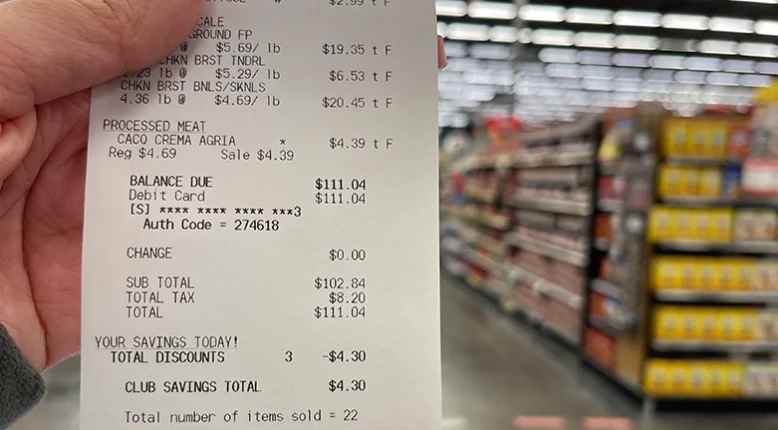With the rising cost of living, finding ways to save money on everyday expenses is more crucial than ever. One area where you can make a significant impact is your grocery bill. In this article, we’ll explore practical tips and strategies to help you stretch your dollars while still maintaining a healthy and satisfying diet.
1. Plan Your Meals and Create a Shopping List:
One of the most effective ways to save money is to plan your meals for the week ahead. Take inventory of what you already have and create a shopping list based on your planned meals. This prevents impulse purchases and ensures you buy only what you need.
2. Look for Sales and Discounts:
Keep an eye on weekly grocery store flyers, and take advantage of sales and discounts. Consider buying non-perishable items in bulk when they’re on sale to save even more in the long run.
3. Use Coupons and Loyalty Programs:
Utilize coupons and loyalty programs offered by grocery stores. Many stores have digital apps that provide exclusive discounts and coupons, allowing you to save money on items you regularly purchase.
4. Buy Generic and Store Brands:
While name-brand products may be appealing, often generic or store-brand items are just as good in terms of quality. Opting for these alternatives can significantly reduce your overall grocery expenses.
5. Shop Seasonally and Locally:
Purchase fruits and vegetables that are in-season, as they tend to be more affordable and fresher. Additionally, consider supporting local farmers’ markets for fresh produce at lower prices.
6. Avoid Impulse Purchases:
Stick to your shopping list and resist the temptation to make impulse purchases. Impulse buys can quickly add up and contribute to overspending.
7. Compare Prices and Unit Costs:
Take the time to compare prices and unit costs of similar products. Sometimes buying in larger quantities or choosing a different brand can be more cost-effective in the long run.
8. Meal Prep and Freeze:
Prepare meals in bulk and freeze portions for later. This not only saves time but also prevents the need for last-minute takeout, which can be more expensive.
Frequently Asked Questions (FAQs):
Q1: Can I still eat healthily while trying to save money on groceries?
A1: Absolutely. Planning meals around affordable, nutrient-rich foods like whole grains, vegetables, and proteins can help you maintain a healthy diet on a budget.
Q2: How can I avoid food waste when buying in bulk?
A2: Freeze perishable items before they expire, and plan meals that utilize similar ingredients to avoid buying excess that may go to waste.
Q3: Are loyalty programs worth the effort?
A3: Yes, loyalty programs can offer significant savings over time. Take advantage of discounts, special promotions, and rewards offered by the programs.
Q4: Is it worth driving to multiple stores for the best deals?
A4: It depends on the distance and time involved. Consider the overall cost of gas and your time to determine if the additional savings justify the effort.
Q5: Can I still enjoy variety in my meals while budgeting for groceries?
A5: Yes, incorporating a variety of affordable and seasonal ingredients can keep your meals interesting without breaking the bank.
Example Scenario:
Imagine you regularly buy a popular brand of cereal at $4.99 per box. By switching to the store’s generic brand at $2.99, you save $2 per box. If you consume two boxes per month, that’s a monthly savings of $4 and an annual savings of $48—just by making a simple switch.
Saving money on your grocery bill is about making thoughtful choices and adopting smart shopping habits. By implementing these strategies and staying mindful of your spending, you can enjoy significant savings without sacrificing the quality of your meals.





















